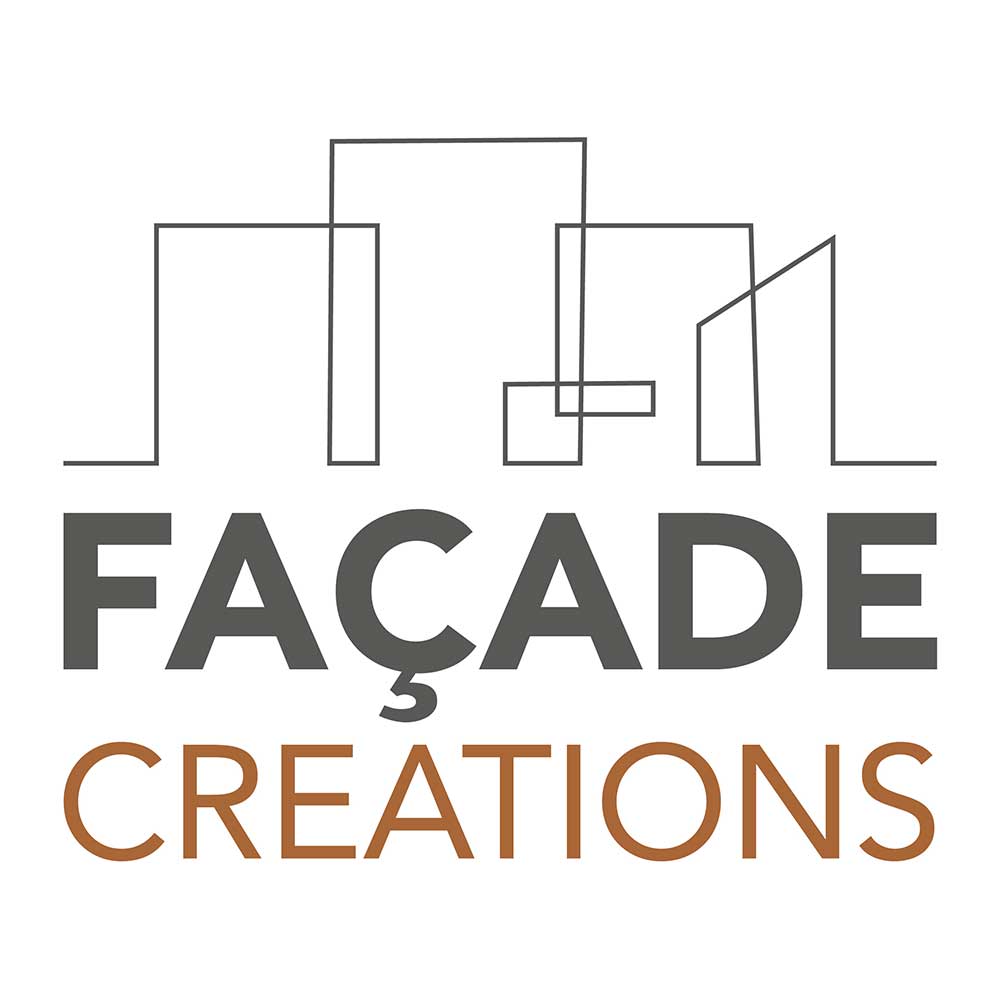Copyright and Intellectual Property Notice
Introduction and Scope
Façade Creations Limited (“FCL” or “the Company”) respects and protects its intellectual property (“IP”) and expects others to do likewise. This Notice explains FCL’s ownership of IP and the permitted use of FCL’s content and brand. It is intended to comply fully with UK law, including the Copyright, Designs and Patents Act 1988 (CDPA 1988), Trade Marks Act 1994, database rights legislation, and related case law and guidance. The Notice covers FCL’s copyright in creative works, design and database rights, registered and unregistered trade marks (including brand assets), and moral rights. It also describes permitted uses (such as fair dealing) and strict prohibitions (such as commercial copying or data scraping). Finally, it sets out FCL’s internal IP governance policies and enforcement procedures, including how to report infringements. This policy applies throughout the United Kingdom (England and Wales) and, for IP matters, is governed by English and Welsh law.
Ownership of Intellectual Property
FCL owns all IP created under its auspices, including works by its employees, consultants, contractors, and designers. Under UK law, the author of an original work (literary, dramatic, musical, or artistic) is normally the first owner of copyright. However, when an employee creates a work in the course of employment, UK copyright law provides that the employer (FCL) is the first owner of copyright in that work. In other words, works created by FCL’s staff as part of their jobs (e.g. architectural designs, drawings, product schematics, marketing materials, software code, and written materials) are automatically owned by FCL unless there is an express agreement stating otherwise. FCL’s standard employment contracts confirm that all intellectual property created during employment is owned by FCL.
Works by Contractors and Third Parties
For works created by independent contractors, designers, or consultants, FCL must secure ownership through contract. By default in UK law, a freelance creator retains copyright in their commissioned work. Therefore, FCL requires that every contractor agreement includes a written assignment of all copyright and related IP rights in the commissioned work to FCL. This assignment must be in writing and signed by the contractor to be valid. In practice, FCL’s contracts stipulate that all designs, drawings, software code, reports, and other deliverables produced under contract become FCL’s property. These contracts also typically require the contractor to waive or consent to the assertion of any moral rights. Failure to obtain a signed written assignment means the contractor would remain the copyright owner, which FCL expressly prohibits.
Joint and Commissioned Works
If FCL co-authors a work with others (for example, collaborating on a design or publication), FCL and the other authors will each have a share of copyright. In such cases, FCL requires an agreement specifying how rights are shared. For works commissioned by FCL (such as a custom façade design prepared by an independent architect or a software module), FCL’s policy is that FCL will be the prospective owner of the resulting copyright. The parties must sign a prospective assignment agreeing that when the work is created, ownership will transfer to FCL. Similarly, any future copyrights (e.g. updates or new modules) created under a pre-existing agreement must be assigned to FCL by signed instrument.
Branding, Designs, and Trade Secrets
FCL also owns its trade secrets and confidential know-how (for example, engineering data, client lists, and proprietary processes) through confidentiality agreements and internal controls. In addition, FCL may hold registered design rights (protecting the appearance of products or façades) and unregistered design rights for the aesthetic designs of its products and structures. Design rights grant exclusive use of designs for commercial purposes. If FCL has registered designs, any third party making, importing, or selling products embodying those designs without permission would infringe FCL’s rights. Likewise, FCL’s unregistered design rights (which arise automatically on creation of an original design) prevent unauthorized copying of the substantive design of FCL’s façade products. FCL shall clearly mark registered designs and keep design creation records and registration certificates on file to document its rights.
Copyright Protection and Scope
Copyright protection arises automatically in original creative works. FCL’s copyright covers all original works created by or for the Company, including (but not limited to) technical drawings, CAD files, architectural plans, product designs, engineering reports, photographs, marketing brochures, website content, software code, and training materials. These are literary, dramatic, musical, or artistic works under the CDPA. Once fixed in a tangible form (written, digital, or otherwise recorded), such works are immediately protected by UK copyright law. No registration or notice is required, although FCL displays a standard copyright notice (e.g. “© [Year] Façade Creations Limited. All rights reserved.”) on its website and publications to reinforce its ownership claim. The CDPA forbids unauthorized acts with respect to protected works, including copying, distribution, adaptation, and public performance or display.
FCL reserves all rights in its copyrighted works. Specifically, the copyright owner (FCL or its designees) holds the exclusive rights to do and authorize the following acts:
- Reproduction – making copies of a work in any form (including digital reproductions), whether in physical or electronic medium.
- Distribution – issuing copies to the public by sale, rental, or otherwise.
- Public Communication – performing, showing, or playing the work in public; broadcasting; or making it available online.
- Adaptation and Derivation – creating translations, adaptations, or derivative works based on FCL content.
- Renting and Lending – renting or lending copies to the public (e.g. renting out software or DVDs).
Any use of FCL’s copyrighted content outside of permitted exceptions without explicit permission is an infringement. FCL’s website, digital publications, and physical materials carry notices stating that all rights are reserved, meaning no rights are granted by implication. The use of these notices, while not legally required in the UK, provides clear public notice that FCL claims ownership. Unauthorized copying or distribution of FCL’s content for any purpose other than those expressly permitted (see below) is strictly prohibited.
Moral Rights of Authors
UK copyright law also recognizes moral rights, which protect the personal relationship between creators and their works. Authors (including FCL’s designers and writers) have the right to be identified as authors of their work (“the right of attribution”) and the right to object to derogatory treatment of their work (“the right of integrity”), among other moral rights. By default, these rights belong to the individual creator, even if FCL owns the copyright. FCL’s policy requires all creators (employees and contractors) to assert or waive moral rights appropriately. Employees generally waive moral rights in their employment contracts or FCL asserts ownership in all relevant attribution. Contractors must sign an instrument confirming that they either waive all applicable moral rights or consent in writing to FCL exercising those rights on their behalf. Under the CDPA, moral rights can only be waived by a signed instrument; they cannot be assigned. Therefore, FCL obtains written waivers as a condition of engagement. This ensures, for example, that FCL may credit itself as author of commissioned works and may alter or adapt works without violating an author’s moral rights.
Trade Marks and Brand Protection
FCL’s brand identities – including the company name, logos, product names, slogans, and other distinctive signs – are protected under UK trade mark law. Trade marks signal the source of goods or services and grant exclusive rights to prevent confusion or misuse by others.
Registered Trade Marks (®)
FCL registers key brand elements with the UK Intellectual Property Office (UKIPO) as official trade marks wherever appropriate. A registered trade mark gives FCL the statutory right to prevent others from using an identical or similar mark for the same or related goods/services if such use is likely to cause confusion among consumers. The law also provides that use of a registered mark that dilutes a well-known mark’s reputation or takes unfair advantage of its goodwill can be an infringement, even absent confusion. Once a trade mark is registered, FCL may lawfully use the ® symbol to indicate its registered status. This symbol “shows that it’s [the brand’s] yours and warn[s] others against using it”, deterring unauthorized use. FCL will only ever use ® with marks that are officially registered in the UK; using ® for an unregistered mark is illegal under the Trade Marks Act 1994. FCL’s registered trade marks are used in connection with the goods and services listed in its registration certificates, and notices of registration (®) are displayed in marketing materials, packaging, and at the site where applicable.
Under the Trade Marks Act 1994, any unauthorized use of a registered trade mark in the course of trade that takes unfair advantage of, or is likely to deceive or confuse, the public is infringement. This includes, for example, applying the FCL logo or brand name to products not supplied by FCL, or using a confusingly similar mark on similar aluminium façade products. FCL will vigorously enforce its registered trade marks. Infringing uses will be met with enforcement actions (see below), including possible civil claims for infringement, injunctions, and damages. Note that trade mark rights are territorial; FCL’s UK registrations protect its brand in the UK (and Isle of Man). If FCL expands to other jurisdictions, separate registrations would be required.
Unregistered Trade Marks (™) and Brand Assets
Even without formal registration, FCL’s brand names, logos, slogans, and distinctive packaging are assets entitled to protection under the common law tort of passing off. The ™ symbol indicates an unregistered trademark claim: it notifies the public of FCL’s claimed rights, though it does not confer statutory monopoly. In the UK, using ™ signifies that FCL is asserting an unregistered trade mark, which provides some common law rights but offers weaker protection than registration. FCL uses ™ on unregistered marks to indicate ownership, but also recognizes that these rights rely on proving goodwill and misrepresentation rather than registration.
Under passing-off law, an unregistered trade mark or brand can be protected if: (a) FCL has built up goodwill or reputation in that mark, (b) another party misrepresents their goods or services as being associated with FCL, causing (c) damage to FCL’s goodwill or trading. In practice, this means FCL’s use of a unique logo, trade name, or tagline that has become known in the marketplace is protected. The tort of passing off “safeguard[s] the goodwill and reputation” of a trader’s brand against misrepresentation. If a competitor tries to mimic FCL’s unregistered marks in a way that confuses customers, FCL can seek remedies in the courts even without a registered mark. (However, proving passing off is more burdensome than enforcing a registered trade mark.) As a general rule, FCL refrains from relying solely on unregistered marks for major brands; where feasible, it will seek formal registration.
Use of Trade Mark Symbols and Branding
Consistent with best practice, FCL uses ™ to label marks that are not (yet) registered. Once a mark is officially registered, FCL switches to ® to reflect the change in status. Misuse of these symbols is strictly forbidden. The Trade Marks Act 1994 explicitly prohibits using the ® symbol for an unregistered mark; doing so is illegal and may constitute passing off or attempted fraud. Accordingly, FCL instructs its marketing and legal teams to verify registration before applying ®, and to use ™ or SM (service mark) only for unregistered brand elements. All branding guidelines, digital assets, and printed materials are audited regularly to ensure that trade mark symbols are used correctly.
Brand Asset Management
FCL maintains a register of its brand assets (trade mark registrations, company names, domain names, logo variations, and graphic elements). This register is reviewed and updated as part of FCL’s internal IP governance (see below). Any use of FCL’s brand assets by third parties (for co-branding, partnerships, or authorized publications) requires a written licence agreement specifying the scope and duration of use. Unauthorized use of FCL’s trade marks or confusingly similar marks is strictly prohibited and will be challenged.
Database and Compilation Rights
Certain collections of data and content on FCL’s websites or databases may be protected under the UK database rights regime (derived from the EU Database Directive and UK regulations). UK law defines a database broadly as a collection of independent works, data, or other materials arranged in a systematic way and individually accessible (e.g. an online product catalogue, price list, or technical data bank). If substantial human, financial, or technical investment was made in obtaining, verifying or presenting that data, the database is entitled to protection for 15 years from its completion or 15 years from the end of the year when the last substantial investment was made.
FCL’s databases (for example, client/customer lists, product data sets, or design specification databases) are protected as valuable intellectual property. The Company does not permit the extraction or reuse of all or a substantial part of any protected database without permission. Specifically, UK database rights forbid copying or reusing a substantial portion of the data unless done with authorization or within very limited exceptions (e.g. for teaching or non-commercial research, and with source attribution). Repeated or systematic extraction of even insubstantial parts may still violate the spirit of the law if it amounts cumulatively to a substantial part.
In parallel, copyright may protect individual items within a database (for example, photographs, designs or text) even if the database as a whole is not protected. Automated scraping or copying of FCL’s website content therefore raises both copyright and database rights issues. FCL’s policy is that any systematic extraction of data (screenscraping, data mining, crawling, or API harvesting) from the Company’s digital systems is prohibited unless explicitly authorized. Such scraping typically constitutes making a copy of content; if all or a substantial part of an artistic or literary work is copied without a licence, it infringes copyright. Likewise, copying or reusing all/substantial parts of a database infringes FCL’s database rights. Consequently, unauthorized data scraping of FCL’s website or apps is not allowed. This includes scraping text, images, engineering data, customer information, pricing, or any other content, whether for commercial or academic purposes, without express permission.
Permitted Use of FCL Content (Fair Dealing Exceptions)
FCL encourages lawful, limited uses of its content consistent with UK copyright exceptions. In particular, UK law provides fair dealing provisions that allow copying or quoting FCL material in certain contexts without requiring a licence. Individuals may copy or quote limited portions of FCL’s copyrighted works for non-commercial research, private study, criticism, review, or news reporting, provided that the use is fair and accompanied by proper acknowledgement. For example, a blogger or journalist may quote short excerpts of FCL’s website or brochures when critically reviewing FCL’s products, as long as the quote is brief, relevant, and the source is credited. Similarly, educators may use extracts of FCL’s published papers or images for classroom instruction under the education exceptions, and students may make copies for private study. These uses must not conflict with FCL’s normal exploitation of the work; fairness is judged case-by-case. Generally, allowable uses include:
- Personal and Educational Use: Copying limited portions of FCL publications or presentations for private research, study, or educational criticism.
- Quotation with Attribution: Quoting short excerpts of FCL content in academic, journalistic or review contexts, with clear acknowledgement of FCL as the source. (For instance, quoting a paragraph from an FCL design report in a thesis or article is permitted if it is necessary and properly cited.)
- Non-Commercial Critique or News Reporting: Using FCL material to comment on, critique, or report on FCL’s work in good faith. This might include quoting a product description or image in a news article about façade design.
- Archival and Preservation: Libraries or archives may make a copy of FCL’s content for preservation or replacement of damaged copies under specific archival exceptions (subject to certain conditions).
- Inspection or Demonstration: A client or auditor may inspect or demonstrate an FCL product using internal manuals or designs for the purpose intended (e.g. demonstrating facade models), so long as it’s within the scope granted and not further distributed.
These permitted uses are subject to the requirement of fairness – for example, copying must be limited to what is strictly necessary for the purpose and should not substitute for the original. Any publicly shared copy must include attribution to FCL. Even when content use qualifies as “fair dealing,” if FCL’s normal market exploitation would be undermined (e.g. providing major excerpts online), FCL reserves the right to challenge it. To avoid doubt, FCL encourages users to seek permission for any use beyond clearly personal, non-commercial, or short-form quotation.
FCL expressly grants no broad licence beyond these exceptions. Use of FCL content outside the above fair dealing contexts requires FCL’s prior written permission or a licence. For example, making copies of FCL’s manuals for a class, reproducing FCL images on a website, or using our designs commercially all require a licence. The notice “All rights reserved” on FCL materials emphasizes that except for explicitly allowed cases (such as those above), no right of copying or distribution is granted.
Prohibited Uses of FCL Content
Except as expressly permitted above, all other uses of FCL’s copyrighted and design-protected content are strictly prohibited. In particular, the following actions are not allowed without FCL’s express written authorisation:
- Commercial Copying or Redistribution: Any copying, reproduction, or distribution of FCL’s content for commercial purposes. This includes uploading FCL’s reports, brochures, images, or software to other websites, posting them on file-sharing networks, or selling printed/digital copies. For example, printing FCL’s entire installation guide and selling it would be infringement.
- Unlicensed Public Display or Performance: Showing or projecting FCL-protected images, videos, or designs in public venues (such as trade shows or other public events) without permission. Broadcasting or streaming FCL presentations in any public forum is likewise forbidden.
- Derivation and Modification: Creating derivative works based on FCL content (e.g. translations, adaptations, or converting FCL designs into a new work) without licence. Even uploading an edited image originally from FCL would be an unauthorised adaptation.
- Systematic Extraction and Data Scraping: Automated collection of data or content from FCL’s systems (“web scraping,” “data mining,” or “screen scraping”) without consent. As noted above, copying all or a substantial part of FCL’s website or database content through bots or software constitutes infringement of copyright and database rights. For instance, using a script to download thousands of pages of FCL design data or client lists is prohibited.
- Removal of Copyright or Trademark Notices: Tampering with or deleting copyright notices, logos, or watermarks from FCL content. All FCL materials bear notices or marks indicating FCL’s ownership; removing or obscuring these is a violation of FCL’s rights.
- Misuse of Trademarks: Implying any endorsement or affiliation with FCL by using FCL’s trademarks or logos without authorisation. This includes placing FCL’s logo on unrelated products, falsely claiming partnership, or using confusingly similar marks.
- Circumvention of Technical Protection Measures: Any attempt to bypass password protection, encryption, or other technical controls that FCL uses to protect its content. Hacking or illegally accessing FCL’s digital assets violates the Computer Misuse Act 1990 and may also infringe copyright.
- Violation of Licensing Terms: Using FCL-licensed content beyond the scope of the licence. For example, if FCL grants permission for a one-time use of an image in a brochure, any reuse beyond that scope (such as posting it online or in multiple publications) would breach the licence and constitute infringement.
In summary, any use of FCL’s IP that is not a fair dealing exception or otherwise licensed is prohibited. Commercial exploitation, unauthorized extraction, and alteration of FCL’s content or data are clear infringements. FCL expressly forbids copying of its content for resale, posting its proprietary CAD drawings on other sites, scraping its databases, and similar activities. These prohibitions are enforced by law and under this Notice.
Moral Rights of Authors
As noted, authors of FCL works (even if employees) hold moral rights under the CDPA. These rights include:
- Right of Attribution (Paternity): The right to be identified or credited as author of a work, once asserted.
- Right of Integrity: The right to object to derogatory treatment of the work that may prejudice the author’s honor or reputation.
- Right Against False Attribution: The right to object if someone else is falsely credited as the author.
- Right of Privacy in Photographs/Films: In limited circumstances, the subject of a photo has privacy rights in certain images.
By default, these rights belong to the human creator. FCL acknowledges and respects moral rights but requires that, as a condition of employment or contract, creators either assert their rights in FCL’s favor or waive them in writing. Under the CDPA, moral rights may be waived (e.g. “I waive my moral rights in this work”) but such waiver must be in writing and signed. FCL obtains such signed waivers or consents from all contributors. When works are published or displayed, FCL will credit authors in a manner consistent with contract (for example, giving credit to designers in project credits or publications). FCL will not deliberately misattribute a work. If an author’s work is modified, FCL will avoid derogatory alterations and will remove or alter the content only as agreed.
Waiver of Moral Rights
As noted above, moral rights cannot be assigned, but they can be waived by a written instrument. FCL’s standard contracts include clauses by which authors waive their moral rights. Any waiver applies only to FCL’s use of the work; it may be conditional or limited to specific works or time periods. FCL presumes that waivers extend to its licensees and successors, unless the agreement states otherwise. This ensures FCL can, for example, modify or translate a work without breaching the author’s moral right, or present works under the FCL name. FCL complies with the requirement that waivers be formalized in writing; no informal verbal waiver is considered binding.
IP Assignment and Licensing
All intellectual property rights created in the course of FCL’s activities must be documented and tracked. FCL’s contracts (with employees, contractors, consultants, and collaborators) clearly assign or licence the necessary rights to FCL.
- Assignments from Contractors and Employees: As noted, copyright and design rights are assigned to FCL by written contract. Similarly, any patents or trademark applications prepared by FCL’s personnel are assigned in writing. FCL’s employment and consultancy agreements specify that IP created within the scope of work automatically vests in FCL. These agreements are signed in writing as required by law. FCL retains those signed assignments in secure records.
- Software and Third-Party Licences: When FCL commissions custom software or incorporates third-party code, it must secure appropriate licences or ownership. FCL’s policy is to avoid including open-source software in projects without review. Any use of open-source or third-party components is approved in advance by legal, and the terms of those licences are documented. (For example, if FCL uses a component under the GNU GPL, FCL ensures compliance with that licence’s requirements and logs it in the IP register.) FCL does not purchase or accept proprietary software licenses that would restrict FCL’s rights to the project outcomes. All third-party licence agreements are signed and filed in a central contract repository.
- Licensing to Others: If FCL licenses its IP (for instance, selling software to a client under licence, or allowing a partner to use FCL’s trademark under a franchise agreement), the terms are set out in a written licence agreement. These licences specify scope (who, where, how), duration, and any royalties or restrictions. Any breach of licence terms by the licensee (such as reproducing more copies than allowed) is treated as an infringement and subject to enforcement.
In short, FCL will only rely on oral promises or informal arrangements in very limited, non-critical situations. Written documentation of IP ownership and usage rights is required at all times. This includes keeping records of how, when, and by whom each piece of IP was created or acquired, as well as any subsequent transfers. All IP-related agreements (assignments, licences, waivers) are stored and tracked.
Internal IP Governance Policies
FCL maintains robust internal governance to manage and protect its IP assets throughout the organization. These internal policies ensure that FCL’s IP rights are consistently documented, tracked, and enforced. Key governance elements include:
- IP Asset Register: FCL keeps an up-to-date register of all its intellectual property. This includes details of registered rights (patents, trade marks, designs), unregistered rights (copyright works and design rights), database contents, and trade secrets. Each item lists its owner (which FCL entity or group within FCL), the date of creation or registration, and relevant documentation (e.g. drawings, registration certificates, assignment agreements).
- Ownership Documentation: For each creative output (e.g. a new façade design, software module, marketing piece), FCL records the author/creator and confirms ownership under the company. Employment and contractor agreements, along with assignment and waiver instruments, are filed to prove chain of title. FCL requires that employees and contractors notify the IP team whenever new IP is developed. This ensures that the facts of creation (who, when, what) are captured. (As a best practice, creators are encouraged to log development notes and source control to timestamp their contributions.)
- Licence and Third-Party Tracking: FCL maintains a centralized inventory of all software and content licences. This includes proprietary software licences, open-source components, and any licensed-in content (stock images, data feeds). For each license, FCL tracks key terms (permitted uses, expiry dates, compliance obligations). FCL’s IT and legal teams conduct periodic audits to verify that usage matches the licences. Unauthorized use of software or content beyond the licence (e.g. installing a program on too many machines, or using a stock photo beyond its scope) is identified and remedied. This license tracking prevents inadvertent infringement of third-party IP and ensures license renewal.
- Open-Source Compliance: With the prevalence of open-source in technology, FCL implements strict processes for using open-source software (OSS). As recommended by legal best practices, FCL has a written open-source policy and compliance procedure. Any employee or developer who wishes to use OSS must submit the component for review. The review assesses compatibility with FCL’s project and license obligations. If approved, the open-source component’s license and version are recorded. Regular training is provided to staff on OSS obligations. FCL also scans codebases for unacknowledged OSS to ensure compliance. Written policies cover approval processes, personnel training, and license tracking as described by industry guidance. This prevents inadvertent incorporation of incompatible open-source code (which could impose unwanted obligations) and ensures FCL’s products are compliant.
- Documentation and Record Keeping: In line with best practices, FCL archives dated records of IP creation. This includes design sketches, concept reports, source code commits, and lab notebooks. Such records provide evidence of originality and creation date, which can be crucial in disputes. Where appropriate, FCL may deposit key works with third parties (e.g. a solicitor’s escrow or digital timestamp) to prove creation date. In all cases, metadata (author, date, project) is stored in FCL’s document management system. This thorough record-keeping is part of FCL’s IP audit process. For example, before launching a new product design, FCL’s IP team audits that all relevant IP rights (copyright, design, patent, trade mark) have been identified and documented.
- Employee Training and Awareness: FCL conducts regular training for staff on IP issues. All employees are informed of this IP notice and general IP obligations. For instance, designers are reminded to use the correct symbol (TM/®) on drafts and publications, and marketers are trained not to use third-party content without permission. New hires sign IP policy acknowledgments, and refresher courses are provided annually. This ensures everyone at FCL understands how to respect IP and follow internal procedures.
By mandating written records and approvals at every step, FCL reduces the risk of losing IP rights (for example, by accidentally publishing without copyright notice) and ensures compliance with the CDPA. As one guide notes, strong protection requires keeping written records of how IP was created and using contracts to clarify ownership, exactly as FCL implements.
Enforcement of FCL’s Intellectual Property Rights
FCL will actively enforce its intellectual property rights to protect the Company’s business and brand. FCL has established an enforcement procedure to handle infringements or suspected infringements of its IP.
Reporting Infringements: If any person becomes aware of actual or potential infringement of FCL’s IP, they should notify FCL immediately. Reports can be sent by email to legal@facadecreations.com or ip@facadecreations.com(alternatively, mail can be sent to FCL’s legal department at its registered address). The report should include details of the suspected infringement (nature of violation, date observed, copies or links to infringing material, etc.). FCL treats all reports in confidence and will investigate promptly.
Investigation Process: Upon receiving a notice of infringement, FCL’s legal team will review the evidence. If the claim appears valid (for example, if the reported content clearly uses FCL’s copyright or trademarks without permission), FCL will take appropriate action. Initial steps may include identifying the infringer, evaluating any applicable licences or exceptions, and determining the commercial impact on FCL. FCL may request additional information from the reporter or conduct its own research.
Cease-and-Desist and Remedies: If FCL determines that infringement has occurred, it will typically begin by sending a formal cease-and-desist letter to the infringer. This letter demands that the infringing use stop immediately and that any unauthorized copies be destroyed or returned. The letter will inform the infringer of FCL’s rights and often cite the relevant law. In many cases, this notice causes the infringement to cease without litigation. If the infringer does not comply, FCL may escalate. Remedies for infringement in the UK include injunctive relief (a court order prohibiting further infringement), damages or an account of profits for losses suffered, and the delivery-up of infringing copies. As a best practice, FCL keeps evidence of infringement (e.g. screenshots of infringing websites, physical samples, timelines) to support legal action. For serious cases, FCL will seek legal advice and may file a suit in the UK civil courts (e.g. High Court or Intellectual Property Enterprise Court for smaller claims). Courts often grant injunctions and damages when IP rights are violated.
Intellectual Property Litigation: FCL reserves all rights to pursue litigation for willful or repeated infringement. Under UK law, infringement of trade marks, designs, or copyright can even constitute a criminal offence if done for commercial gain. Infringers may also be liable under the Trade Marks Act or CDPA for statutory damages. FCL will not hesitate to seek civil or criminal remedies against counterfeiters, bootleggers, or other bad-faith infringers. FCL may coordinate with authorities (such as trading standards or border enforcement) if necessary to stop physical imports of infringing goods.
Alternative Dispute Resolution: In less adversarial situations, FCL may offer to settle IP disputes through negotiation or mediation rather than court. For example, if someone inadvertently used FCL material without realizing it, FCL might grant a retrospective licence for a fee or obtain an assurance not to repeat the act. However, any such settlement will still require acknowledgement of FCL’s rights and often a formal licence agreement.
Customs and Border Measures: If FCL suspects that imported goods infringe its design or trade mark rights, it can apply for customs enforcement (UKIPO can cooperate with HMRC to detain counterfeit imports). FCL keeps track of its registered rights so that customs can act if infringing copies are shipped into the UK.
In all enforcement actions, FCL aims to be thorough and fair, giving alleged infringers an opportunity to respond. However, FCL’s policy is clear: unauthorized use of its IP will trigger enforcement. Consistent with legal guidance, FCL will use all remedies at its disposal – injunctions, damages, and statutory orders – to stop infringement. For example, as guidance notes, an IP holder in the UK may send a cease-and-desist letter, seek financial compensation, and obtain court orders to prevent continued use. FCL adheres to these steps.
If you are accused of infringing FCL’s rights, you should take the notice seriously. FCL’s communications will specify the rights infringed and the required actions (usually immediate cessation). Ignoring an IP notice can lead to a court judgment by default, plus legal costs. FCL may also pursue infringement notices under the Copyright, Designs and Patents Act 1988, which require infringers to affirm non-infringement or face penalties.
Jurisdiction and Governing Law
This Notice and any dispute arising from it or from the use of FCL’s IP shall be governed by the laws of England and Wales. Any legal proceedings relating to these matters shall be brought exclusively in the courts of England and Wales. FCL and all users of FCL’s content agree to submit to that jurisdiction.
Changes and Updates
FCL reviews this Copyright and IP Notice periodically (at least annually) and updates it to reflect changes in law, business practices, or technology. Users and collaborators are encouraged to refer to the latest version available on FCL’s website. Continued use of FCL’s content implies acceptance of any updated terms. In any event of conflict between an older version and a newer one, the most recent version governs.
Compliance and Contact Information
FCL is committed to full legal compliance. All employees, contractors, and partners must follow the requirements set out in this Notice. Failure to comply may result in disciplinary or legal action. FCL’s internal IP team is responsible for overseeing compliance, conducting audits, and providing guidance.
If you have questions about this Notice or need permission to use FCL’s intellectual property, please contact . For reporting infringement or requesting license information, contact info@facadecreations.co.uk. Please include relevant details and references to the specific FCL content in question. FCL will respond to inquiries promptly and may provide guidance on obtaining rights or licences.
Effective Date: [Month, Year]. All rights not expressly granted herein are reserved to Façade Creations Limited.
Jurisdiction: This Notice and all IP rights described herein are governed by, and enforceable under, the laws of England and Wales. All disputes shall fall within the exclusive jurisdiction of English and Welsh courts.
Acknowledgment: By accessing or using materials on Façade Creations Limited’s website or receiving any of its copyrighted or branded materials, you acknowledge that you have read, understood, and agree to abide by this Copyright and Intellectual Property Notice.
Contact Us
If you have any questions or concerns about this policy, please contact us.
Our details are:
- Email: info@facadecreations.co.uk
- Postal Address: 124 City Road, London, EC1V 2NX, United Kingdom
- Telephone: +44 (0)116 289 3343
We will do our best to respond promptly and address your concerns.
Last updated: October 2025















